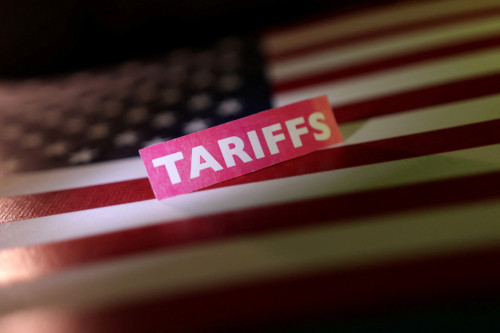 1
1 1
1By Yoruk Bahceli
(Reuters) – Companies raced to bond markets last month, undeterred by the Ukraine war as they tried to lock in relatively cheap borrowing, though the March rush did not prevent first-quarter sales in the euro market from slumping to a four-year low.
Bond markets globally endured immense volatility in the January-March quarter, stoked by hawkish turns from the U.S. Federal Reserve and European Central Bank, as well as Russia’s Feb. 23 invasion of Ukraine. That, coupled with lower funding needs, pushed bond issuance lower across all debt categories, with Refinitiv data showing it as the slowest first quarter in three years.
In the euro area, where debt markets froze for longer following the invasion, fundraising by investment-grade companies amounted to 93.6 billion euros, the worst first quarter since 2018, according to Refinitiv.
But March turned out to be the busiest month since September 2020 for euro investment-grade sales with some 43.5 billion euros raised.
The U.S. market enjoyed its highest monthly volume on record at any time except during the pandemic liquidity crunch in early 2020, with $130.6 billion of sales in March. First-quarter sales however dropped to a three-year low.
For a related graphic on U.S. corporate debt sales, click https://tmsnrt.rs/3tXm7wa
“None of the syndicates expected it to go quite as well, said Helene Jolly, head of EMEA investment-grade corporate syndicate at Deutsche Bank, citing volatility, some bond outflows and inflationary pressures.
The March issuance pickup came as credit markets stabilised and risk premia, the additional yield companies pay on top of government bonds, have slipped below levels seen at the start of the invasion.
Still, borrowing costs in the euro area have tripled for investment-grade companies this year, with the average yield on BofA’s index at 1.50%.
For issuers, “it’s that dynamic of saying: yes (borrowing costs) are higher… but on a historical basis it still looks good and anyone who has come this year has looked smart pretty much immediately in terms of what rates have done,” Jolly said.
Some companies have been bringing forward their near-term funding plans, she added.
For a related graphic on Euro IG corporate debt sales, click https://tmsnrt.rs/3J0ll67
But for companies with sub-investment grade credit ratings, the backdrop remains challenging. The euro area saw virtually no “junk” debt sales last month, while just $10.6 billion was raised by U.S. junk names.
Issuance slumped 70% compared to first-quarter 2021 in both markets, to the slowest since 2016 in the U.S. and 2019 in the euro area.
A positive sign for the European market waiting to reopen came in recent weeks as two companies carrying split ratings -investment-grade and high yield – managed to place bonds.
However, a third such company, shopping center owner IGD, postponed a deal after it received less demand than the amount it originally sought to raise, according to a lead manager.
Daniel Rudnicki Schlumberger, head of EMEA leveraged finance at JPMorgan, said based on client discussions, he expects the European high yield market to restart around Easter.
“If the current market conditions don’t worsen, we’re going to go through a period of slow issuance that will show gradual progress.”
Rudnicki Schlumberger said he expects most of the issuance to come from mergers and acquisitions financing, as the rise in borrowing costs and hefty issuance during the pandemic makes refinancing deals less likely.
(Reporting by Yoruk Bahceli; editing by Sujata Rao and Louise Heavens)